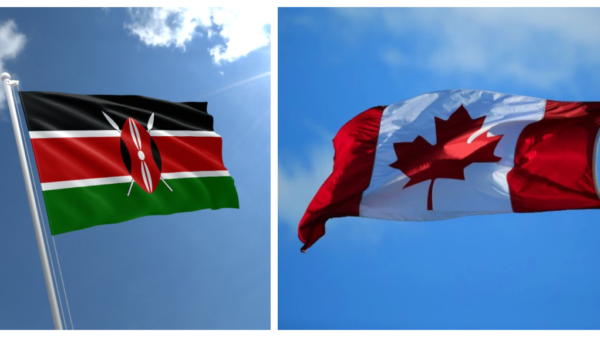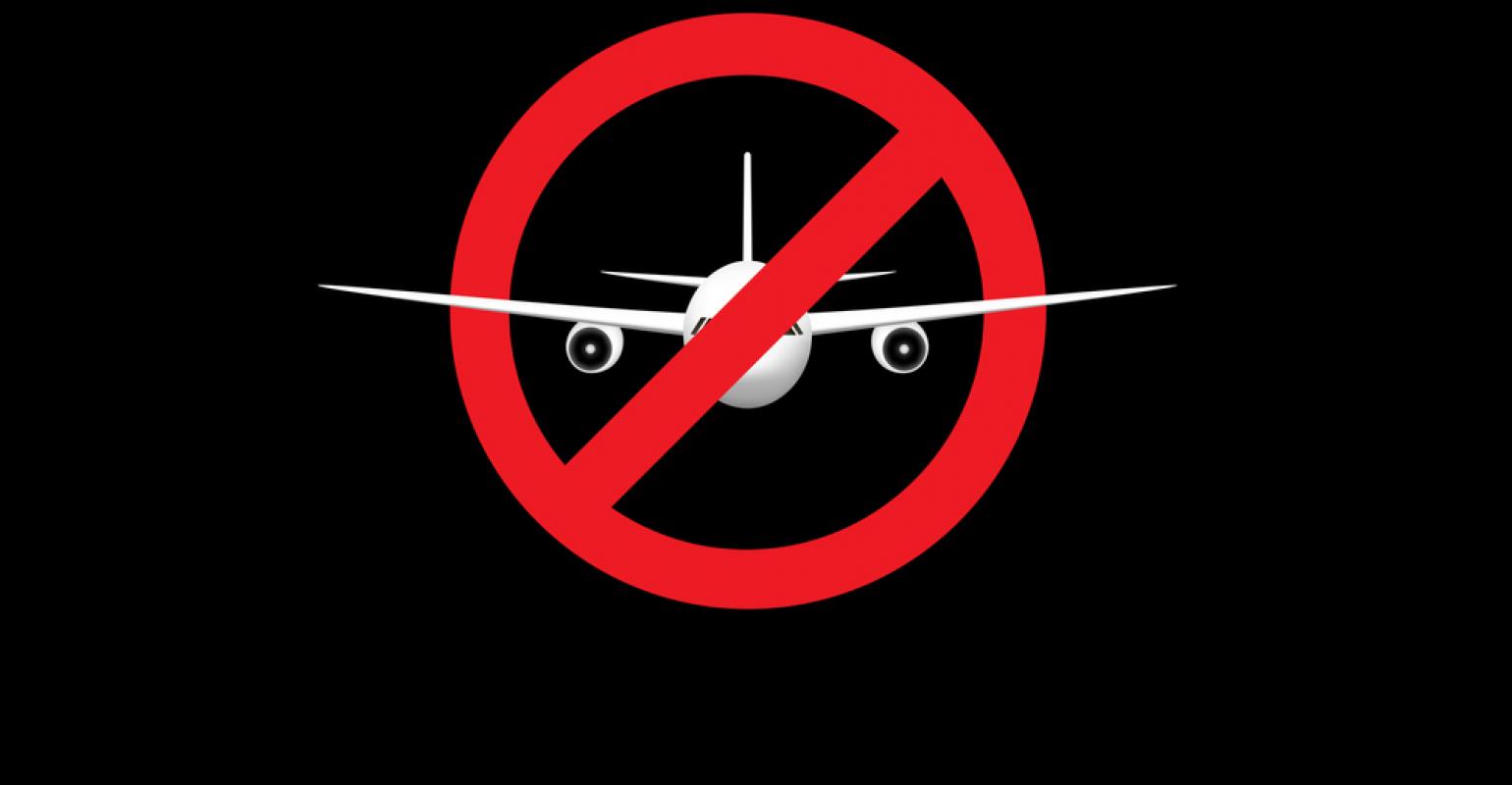- The U.S. State Department has issued travel advisories for countries that people should avoid
- This is due to factors like global conflicts and potential natural disasters, which may cause unexpected issues.
- The List appears just a month ahead of the highly awaited Christmas travelling season.
Follow us on Facebook and Twitter for the latest entertainment news and exclusives
The U.S. Department has issued travel advisories for countries that people should avoid due to factors like global conflicts and potential natural disasters, which may cause unexpected issues, especially during the busy holiday season for international Christmas travel.
Here are 22 countries which the United States has warned people against travelling to and why.
Afghanistan
In Central Asia, the State Department warns of “armed conflict, civil unrest, crime, terrorism, and kidnapping,” with U.S. citizens at risk of violence or abduction. In October 2023, Afghanistan experienced devastating earthquakes, claiming over 2,400 lives amid a prolonged drought.
Belarus
Belarus, which shares a western border with Russia and a southern border with Ukraine, has been flagged for “Belarusian authorities’ continued facilitation of Russia’s war against Ukraine, the buildup of Russian military forces in Belarus, the arbitrary enforcement of local laws, the potential of civil unrest, the risk of detention, and the Embassy’s limited ability to assist U.S. citizens residing in or traveling to Belarus.” The U.S. Embassy in Minsk halted operations in February 2022.
Burkina Faso
Terrorism, crime and kidnapping are plaguing this West African nation. Terrorist attacks may target hotels, restaurants and schools with little to no warning, and the East and Sahel regions of the country are under a state of emergency.
Central African Republic
While there have not been specific incidents of U.S. citizens targeted with violence or crime, violent crime and sudden closure of roads and borders is common. The advisory states that “Embassy Bangui’s limited capacity to provide support to U.S. citizens, crime, civil unrest, and kidnapping” is a factor in its assessment.
Myanmar (Formerly Burma)
Armed conflict and civil unrest are the primary reasons to not travel to this Southeast Asian country, which experienced a military coup in early 2021. COVID-19 restrictions, limited health care resources, wrongful detentions and “areas with land mines and unexploded ordnance” are also listed as risk factors.
Gaza
Hamas, a foreign terrorist organization as designated by the State Department, controls much of the Gaza Strip, which shares borders with both Israel and Egypt. On Oct. 7, Hamas fighters broke across the border into Israel, killing hundreds of civilians and soldiers in a brazen attack that stunned Israelis. On Oct. 10, Israel hit the Gaza Strip with “the fiercest air strikes in its 75-year conflict” according to Reuters, and rescuers say they’ve been hindered by additional attacks and a dwindling fuel supply.
Haiti
In July, the Department of State ordered all non-emergency U.S. government personnel and family members to leave the U.S. Embassy in Port-au-Prince in response to the increased risk of kidnapping and violent crime in the country, as well as armed conflict between gangs and police. A series of gang attacks in late September in the country’s central department caused thousands to flee their homes amid escalating violence.
Iran
Kidnapping and wrongful detentions are risk factors for all travelers to Iran, while U.S. citizens are specifically at risk for “arbitrary arrest and detention.” U.S.-Iranian nationals such as students, journalists and business travelers have been arrested on charges of espionage and threatening national security. Executions in Iran rose sharply between 2021 and 2022, bringing the country’s total to nearly 580 people over the year, according to a recent report by Amnesty International.
Iraq
Last winter, for the first time in four decades, this war-torn Middle Eastern nation hosted the Arabian Gulf Cup, an eight-nation international soccer tournament. But while the country appears optimistic about a more stable future, the U.S. government still puts Iraq on its “no-go” list. The State Department cites “terrorism, kidnapping, armed conflict [and] civil unrest” as cause for the country’s Level 4 distinction.
Libya
Following the end of its dictatorship over a decade ago, Libya has been wrought with internal conflict between armed groups in the East and West. Clashes between armed factions have escalated across the country in the last several months, including in the capital city of Tripoli and in Benghazi, which as of mid-October was under a communications blackout that authorities attribute to a broken cable.
Mali
After experiencing a military coup in 2020, crime, terrorism and kidnapping are all prevalent threats in this West African landlocked nation. In July 2022, non-emergency U.S. government employees and their families were ordered to leave the country due to higher risk of terrorist activity. A U.N. report in August said that military groups in the country, including both Mali security forces and possibly Russian Wagner mercenaries, were spreading terror through the use of violence against women and human rights abuses.
Mexico
Each state in Mexico is assessed separately for travel advisory levels. Six of the 32 states in Mexico are designated as Level 4: Colima, Guerrero, Michoacan, Sinaloa, Tamaulipas and Zacatecas. Crime and kidnapping are listed as the primary risk factors throughout the country. Nearly 112,000 people are currently missing across the country, a number the U.N. has called “alarming.”
Niger
In early August, the country’s travel advisory status was changed from Level 3 to Level 4 following an attempted coup, and the Department of State ordered all non-emergency U.S. government personnel and family members to leave the U.S. Embassy in Niamey.
North Korea (Democratic People’s Republic of Korea)
U.S. passports are not valid for travel “to, in, or through” this country, home to one of the world’s longest-running dynastic dictatorships. The travel advisory states that the Level 4 distinction is due to “the continuing serious risk of arrest and long-term detention of U.S. nationals.” In July, a U.S. soldier fled across the border into North Korea, where he is believed to be in North Korean custody, the first American detained in the North in nearly five years.
Russia
The travel advisory for Russia cites its invasion of Ukraine, harassment of U.S. citizens by Russian government officials and arbitrary law enforcement as a few of the reasons for the Level 4 designation. Chechnya and Mount Elbrus are specifically listed as Level 4 regions. Terrorism, civil unrest, health, kidnapping and wrongful detention are all noted as risks.
Somalia
A severe drought resulting from five failed rainy seasons in a row killed 43,000 people last year, and caused an ongoing famine amid conflict with Islamist insurgents. Violent crime is common throughout Somalia, pirates frequent its coast off the Horn of Africa, and medical facilities, where they exist, have limited capacity. Crime, terrorism, civil unrest, health and kidnapping are all risk factors.
South Sudan
Several journalists with state-run South Sudan Broadcasting Corporation were detained in January for releasing footage of President Salva Kiir, who has been in power since the country separated from Sudan in 2011. Crime, kidnapping and armed conflict are the primary risk factors, with violent crime common throughout the country. Weapons are readily available, and travelers have been victims of sexual assault and armed robbery.
Sudan
The U.S. evacuated its embassy in Khartoum in April 2023, and the country closed its airspace due to the ongoing conflict in the country, only permitting humanitarian aid and evacuation efforts. Fighting has escalated in the region between two warring generals seeking to gain control after a military coup in 2021 ousted the country’s prime minister. Civil unrest is the primary risk factor for Africa’s third largest country by area. Crime, terrorism, kidnapping and armed conflict are also noted. The International Criminal Court is investigating alleged war crimes and violence against African ethnic groups in the country.
Syria
The advisory states that “No part of Syria is safe from violence,” with terrorism, civil unrest, kidnapping, armed conflict and risk of unjust detention all potential risk factors. U.S. citizens are often a target for kidnappings and detention. The U.S. Embassy in Damascus halted operations in 2012.
Ukraine
Russian setbacks in their invasion of Ukraine have buoyed hopes in the country for 2023. However, Ukraine is a Level 4 country due to “Russia’s full-scale invasion,” with crime and civil unrest also noted as risk factors. The Ukrainian government declared a state of emergency in February 2022.
Venezuela
Human rights abuses and lack of health care plague this South American nation, which has been in a political crisis since 2014. In 2019, diplomatic personnel were withdrawn from the U.S. Embassy in Caracas. Threats in the country include crime, civil unrest, kidnapping, wrongful detention and poor health infrastructure.
Yemen
Six of the nine risk factors defined by the State Department – terrorism, civil unrest, health risks, kidnapping, armed conflict and landmines – are all present in Yemen.
Follow us on Facebook and Twitter for the latest entertainment news and exclusives




























